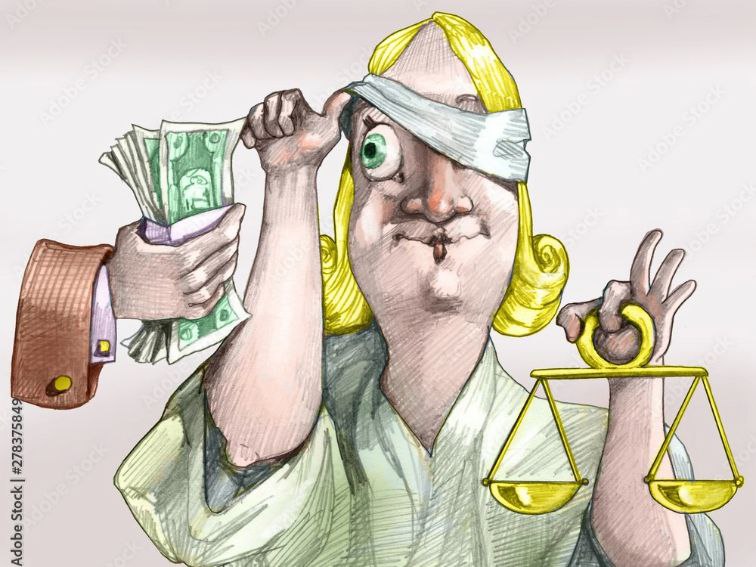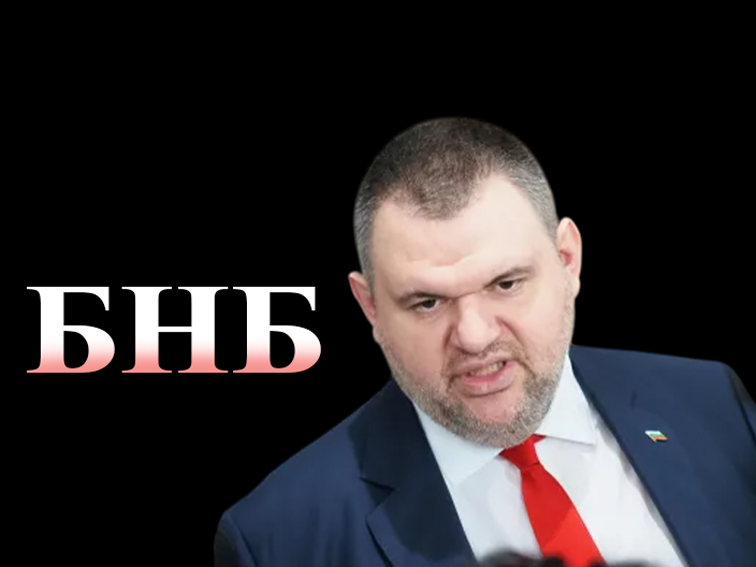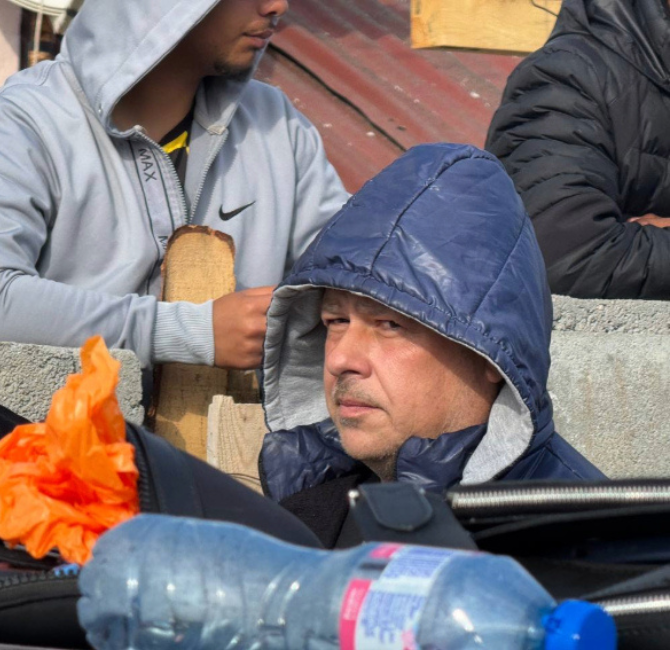The European Commission has said what Bulgarian authorities stubbornly refuse to acknowledge: in Bulgaria, the rule of law is encapsulated, corruption is entrenched at the highest levels of power, the media is trapped between dependency and self-censorship, and the rule of law exists only in figurative statements. The 2025 report leaves no room for doubt - Sofia is among the most problematic legal jurisdictions in the European Union, with systemic failures in multiple areas that would have triggered sanction procedures in other countries.
The Commission has voiced aloud what has been whispered in Bulgaria for years: the state is paralysed by institutional powerlessness, justice is entangled in dependencies, and media freedom is a façade. The 2025 Rule of Law Report places Bulgaria on the brink of systemic collapse in key areas. Compared to other EU countries, Bulgaria remains at the bottom across nearly all observable parameters, alongside Hungary, Poland, and Croatia.
A Judiciary Past Its Expiration Date
The Commission directly points out that the Supreme Judicial Council (SJC) has been functioning beyond its mandate since October 2022, with Parliament even passing a law forbidding this body from electing a new Chief Prosecutor - an astonishing constitutional absurdity equivalent to a legal vacuum.
The replacement of judicial reform with mere simulation has reached the point where the Constitutional Court struck down key amendments to the Constitution, arguing they affected “the foundations of the state structure.” At the heart of this deadlock lies the SJC’s Inspectorate - a body that, according to the EU Court of Justice, operates in violation of European principles of independence and legality.
The report clearly states: the constitutional reform attempts were not only compromised but also ruled unconstitutional. With changes rejected by the Constitutional Court, Bulgaria remains stuck with the old structure of the SJC, where only four out of twenty members are directly elected by judges - a proportion far below the standards in countries like Germany (over 50% professional quota) or Belgium (where the judiciary has a priority role). The deepening dominance of Parliament over the prosecutor’s college was directly criticised as violating the separation of powers.
Bulgaria is one of the few EU countries where the Chief Prosecutor is not subject to effective oversight. The Commission notes that the new accountability mechanism does not function due to procedural flaws and the de facto dependence of the "ad hoc" prosecutor on the prosecution itself. In countries like Slovenia and Italy, independent mechanisms for investigating prosecutors' work are used. In Bulgaria, they are blocked.
Even more telling: of over 144,000 refusals to open pre-trial proceedings in 2024, only 512 reached judicial review. That’s under 0.5%, a level of legal opacity unacceptable for an EU member state.
Justice on Hold
The Council of Europe again reminds: 800 Bulgarian judges have been screened for ties to organised crime, but not a single one has been charged. In Poland, such a scale of suspicion triggered a disciplinary storm. In Bulgaria, silence and inaction.
At the same time, the SJC Inspectorate continues to function with an expired mandate, despite a condemnatory ruling by the EU Court (Case C-313/23 and others), which prompted immediate institutional reform in countries like Latvia and the Czech Republic. In Bulgari, no action.
E-Justice Offline
Bulgaria lags significantly in the ddigitalisationof its justice system. While trials have been conducted remotely in Austria and Lithuania since 2021, Bulgaria still lacks electronic connections between courts, lawyers, and notaries. Businesses report the absence of digital services as a barrier to operations. The Ministry of Justice has announced reform intentions, but lacks both capacity and credibility.
Bulgaria not only fails to meet EU rule-of-law standards, but it systematically dismantles them. The 2025 report is an unprecedented indictment and also a final warning. If the political class continues to ignore these signals, Bulgaria risks becoming a parallel reality at the heart of Europe, a territory with European funding but without European law.
Corruption as Official Institutional Background
Bulgaria ranks 26th in the EU on the anti-corruption index; only Hungary fares worse. The European report confirms: businesses do not trust the justice system, and society trusts it even less. 89% of companies consider corruption widespread, and more than half see it as an obstacle to doing business.
The European Public Prosecutor’s Office is already investigating the Bulgarian delegated prosecutor for serious violations. And yet, there are no convictions of high-ranking officials. Year after year, Bulgaria shows its inability, or unwillingness, to deliver any form of criminal justice.
Corruption has become a national trait, with a Transparency International score of 43/100, placing Bulgaria second to last in the EU. In comparison, Denmark (90), Finland (87), and Sweden (83) prove that anti-corruption policy is a matter not of finances but of institutions and political will.
Again, 89% of businesses in Bulgaria see corruption as widespread; in Romania, that number is 70%, in Germany, 31%. Despite numerous reports, the prosecution has not delivered a single conviction of a high-profile figure. This makes Bulgaria unique in the EU, a country where anti-corruption rhetoric is a total substitution for reality.
Media Without Oxygen
The state of the media in Bulgaria is alarming: a lack of ownership transparency, political pressure on the media regulator (CEM), and deliberately delayed competitions for the directors of BNT and BNR. Public and municipal funding create dependencies that distort editorial policy.
Physical attacks on journalists are not effectively investigated, and Bulgaria continues to accumulate condemnatory rulings from the European Court of Human Rights in Strasbourg. Compared to most EU states, Bulgaria is among the worst in terms of media freedom and journalist protection, a trend with no sign of reversal.
Shadow Media
Bulgaria is among the lowest-ranked EU countries for media freedom, according to the Media Pluralism Monitor and Reporters Without Borders. In 2025, not a single fine was issued for hiding media ownership, despite public evidence of violations. In Estonia and France, such offences lead to immediate suspension of access to public funds. In Bulgaria, negligence and institutional indifference.
Appointments in public media are engulfed in scandal, and acting directors offer not a long-term vision but short-term loyalty.
Dismantled Rule of Law
The Commission also notes the ineffectiveness in executing court rulings, including those from the European Court of Human Rights, which are delayed for years. No institution bears real responsibility for the systemic lack of action. In countries like Germany, the Netherlands, or Finland, such delays are rare exceptions. In Bulgaria, they are the norm.
European Outrage and Bulgarian Indifference
Bulgaria finds itself in legal and moral isolation within the EU. While other countries are monitored over isolated incidents, in Bulgaria, the system itself is the violation. And although the report uses measured administrative language, its findings amount to a diagnosis: institutional decay, loss of public trust, refusal to uphold justice.
The time for evasion has run out. If this report too is ignored politically, the next one may come not with a warning, but with a funding suspension procedure. Or at least that would be the logical consequence if the European Union is serious about its values.
There is no need for more protocols, analyses, or inter-institutional dialogues. The diagnosis is clear, the body is on the table, and the European Commission is already writing the autopsy.
Bulgaria is not merely failing to reform; it is orchestrating its staged failure.
Institutions with expired mandates, prosecutors beyond control, a judiciary in constitutional coma, voiceless media, and a business sector seeking justice abroad, this is not a transition, this is permanent pathology.
While other Central European countries are managing to realign with the rule of law, Bulgaria seems to deliberately choose to remain in the zone of institutional shadow, semi-democratic, semi-transparent, and fully unaccountable.
Europe can watch, and it can urge, but eventually, it will have to act. Because a poisoned justice system doesn’t just fail to heal, it infects.
And if the Bulgarian political class still believes these reports are just background noise from Brussels, it had better listen closely to this one: it doesn’t echo in bureaucratic tone, but tolls the death knell for the rule of law in Bulgaria, a toll that can no longer be muffled by artificial smiles and hollow reformist language.












Comments
The article has 0 comments